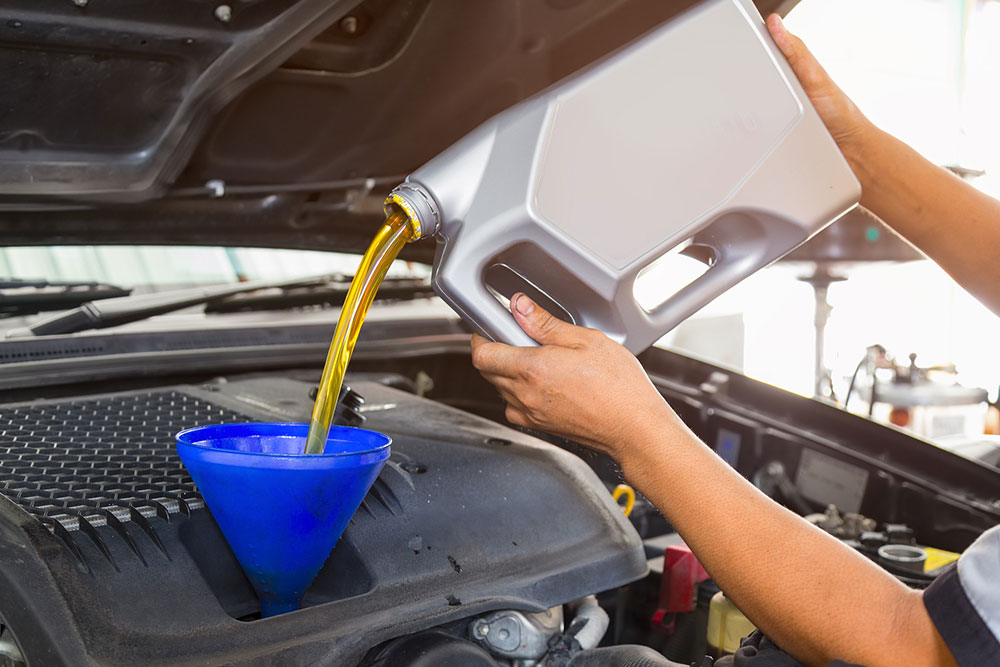6 mistakes to avoid while changing a Jeep’s oil

Changing engine oil is a mundane yet essential task to improve a car’s performance, durability, and mileage. This is true for all cars, including Jeep models. Not changing the oil can cause the automobile to overheat, increasing maintenance and repair costs. Typically, Jeep SUVs require an oil change every 3,000-5,000 miles and 7,500-10,000 miles for conventional and synthetic oil, respectively. One must avoid making these mistakes while changing the oil in Jeeps.
Using the wrong oil
Using the wrong oil can cause significant damage to a vehicle’s components. It can increase the rate of wear and tear and result in substantial maintenance costs. Hence, customers must understand which type of oil to use and when. For example, since the oil tends to thicken during the winter, thinner oil works well. Similarly, one may use thicker oil during warm weather conditions.
Individuals may use either conventional or synthetic oil in a Jeep. Synthetic oil is preferred because it is more refined and ensures better longevity. It also ensures better performance during extreme weather conditions. Experts say one must continue using the same type of oil and avoid mixing.
Not considering the Jeep model one owns
Jeep suggests using specific types of oils for its models. For example, the 0W-20 synthetic oil is recommended for the Wrangler, Gladiator, and Grand Cherokee. Similarly, Jeep Renegade owners are advised to use the 5W-40 synthetic oil. Before changing the oil in one’s Jeep, customers should research the type of oil best suited for the model.
Not fitting the oil filter properly
Installing the wrong oil filter or positioning it incorrectly can cause leakage or inadequate oil filtering. Hence, Jeep owners must use the right filter and tighten it after every refill. At the same time, one should ensure the filter is not too tight, as this can break the O-ring.
Not replacing the O-ring regularly
The O-ring is a seal over the oil filter that prevents leakage. It is subject to damage and wear and tear; therefore, one should replace the ring frequently and check it when changing the oil. One should also ensure the O-ring comes out smoothly when removing the Jeep’s oil filter.
Filling too much or too little oil
Insufficient or excessive oil can cause problems with the vehicle’s hydraulic pressure. Insufficient oil can further cause lubrication issues in the car’s components while overfilling can lead to gasket leakage. Thus, one must be alert while filling oil in their Jeep.
Not reading the manual carefully
Jeep’s manual typically has extensive instructions and information on the oil filling process. Customers must read these instructions carefully. Missing key details can cause problems like oil leakage and part damage.
While changing a Jeep’s oil is no rocket science, not everyone may have the time, inclination, or patience for such mundane tasks. In such cases, it is best to hire a professional. They pay close attention to aspects like the type and level of oil, ensuring a hassle-free oil change. They may also spot other problems with the car in time, preventing expensive repairs.

